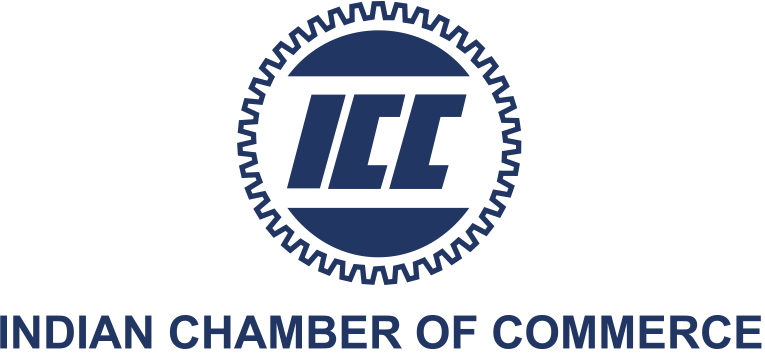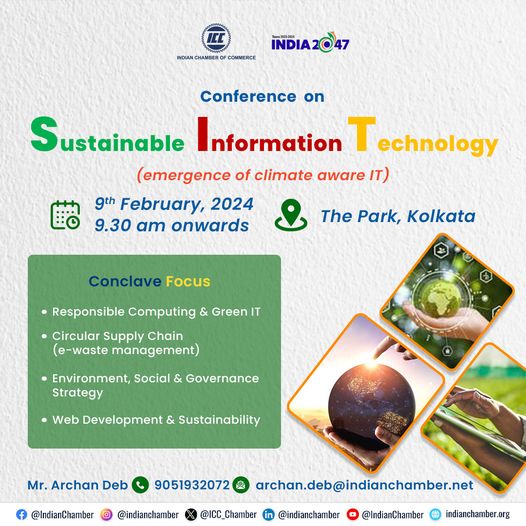ICC Technology, Innovation & Advancement sector
Technology has become the defining engine of our global
economy, a transformative force touching every aspect of business, economics,
geopolitics, lives and livelihoods. Whether it’s the way we work, trade,
produce, or connect, technology isn’t merely an enabler—it's the core driver of
competitiveness and survival. The numbers tell a powerful story: in FY 2024,
India’s technology industry—including hardware—achieved an estimated revenue of
USD 254 billion, adding over USD 9 billion from the previous year, marking a
growth of 3.8%. Yet, these numbers are just the beginning. Behind them lies a
sweeping truth: today, industries across the spectrum are either
technology-enabled, or they are no longer relevant.
Technology isn't just transforming individual sectors; it’s
driving the very structure of our global economic order. It's creating new
opportunities and risks, redefining alliances, and even reshaping geopolitics.
The competitive edge lies in the ability to innovate, to move faster, adapt
better, and deliver more—all of which depend on leveraging technology
effectively. If technology is the new electricity, then data is the new
oil—powering every industry, fuelling growth, and lighting up the path to the
future.
The feverish pace that India is embracing technology into
all matters has it poised on the very cusp of digital transformation. The
“India Stack” has been a game changer. UPI took India from a paper-currency
driven market to one that's synonymous with digital payments.
India is thus emerging as one of the world’s top innovation
hubs, due to the cumulative impact of the expansion of Digital Public
Infrastructure covering payments, identity, and data management; development of
engineering and research talent, and the emergence of a dynamic startup
ecosystem, now one of the top three in the world. Globally, India is among the
top countries in the field of space research and has positioned itself as one
of the top five nations in the field of space exploration.
In an era of technology and artificial intelligence
reshaping industries at an unprecedented pace, tech leadership has emerged as a
critical success factor. The role of a tech leader is evolving from a purely
technical focus to one that integrates technology strategy with business
acumen. They are now expected to understand emerging technologies and harness
them for strategic advantage, driving efficiency, growth, and exceptional
customer experiences.
Some of the key imperatives trending in the technology
sector are summarised below.
Technology Innovation as a strategic priority
Businesses are now actively investing in technology
innovation to align their overall business strategy and
objectives. Businesses are promoting expertise in emerging fields such as
AI, and internet of things (IoT), which are revolutionising industries by
enabling advanced data analysis, automation, predictive modelling, and
optimisation.
Fostering a Culture of Innovation
Organisations are cultivating a culture of innovation that
values and encourages innovation. They are fostering an environment where
employees are empowered to generate and share ideas, experiment with new
technologies, and embrace a mind-set of continuous learning and improvement.
Developing talent and enhancing the talent pool in the new tech areas would be
one of the key success factors for the technology sector.
Data protection risks and cybersecurity
As data increasingly drives decisions it is giving rise to
new opportunities but risks as well. Businesses are assessing and managing
risks associated with technology innovation initiatives. Potential challenges
being identified are technological feasibility, regulatory compliance, market
acceptance, and cybersecurity risks. The Government is also actively working on
creating favourable regulations. The recent Digital Personal Data Protection
Bill shows the commitment of the Government to safeguarding personal data in
the digital realm while respecting individual rights.
Focus on electronic manufacturing, IT hardware and
semiconductors
Due to the shift in global supply chains, from cost-driven
globalisation to control-driven reshoring India has witnessed significant
interest from global companies in electronics manufacturing. Traction is
also being witnessed in India’s semiconductor market, mainly due to the global
supply chain crisis and rising demand from the consumer electronics, telecom,
IT hardware and industrial sectors, both within the domestic and export
markets.
The Role of Government Policy Environment
The Indian government’s current approach to tech policy has
been characterized by ambitious initiatives to foster an open, trustworthy, and
secure internet. A favourable regulatory environment, coupled with strategic
government initiatives such as Digital India, Make in India, and Production
Linked Incentive (PLI) schemes, has paved the way for unprecedented growth.













